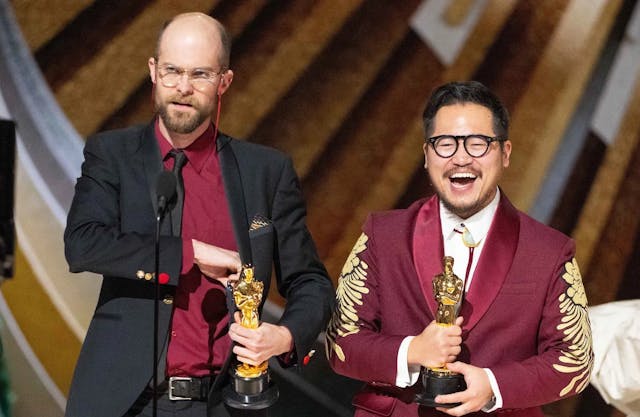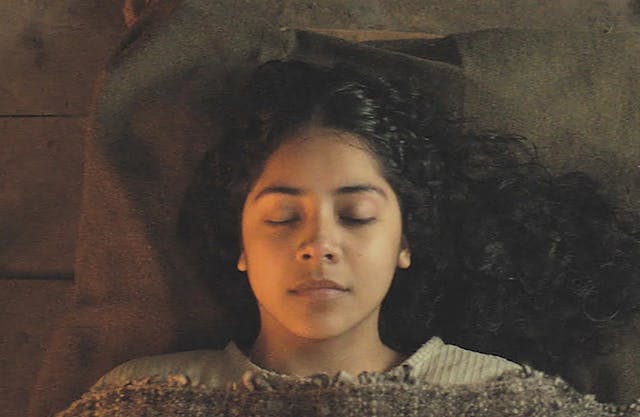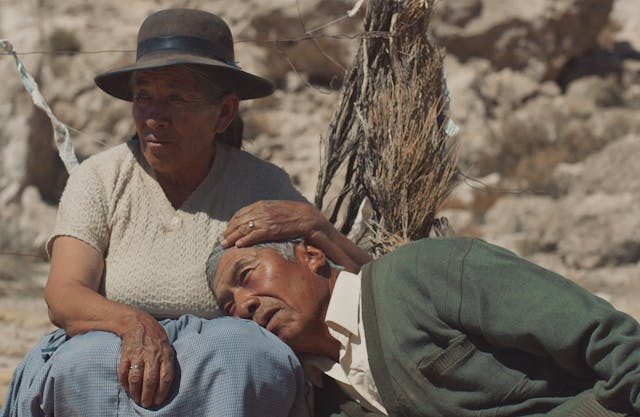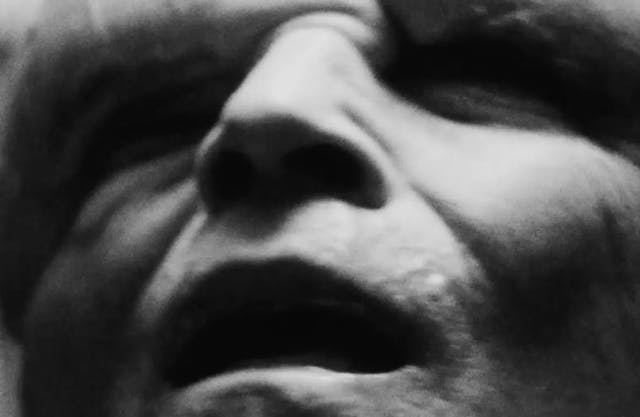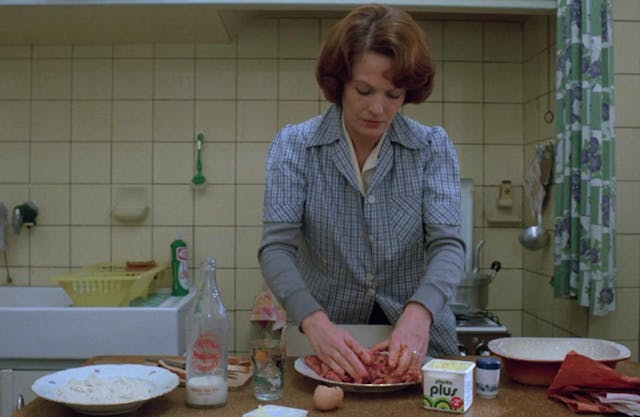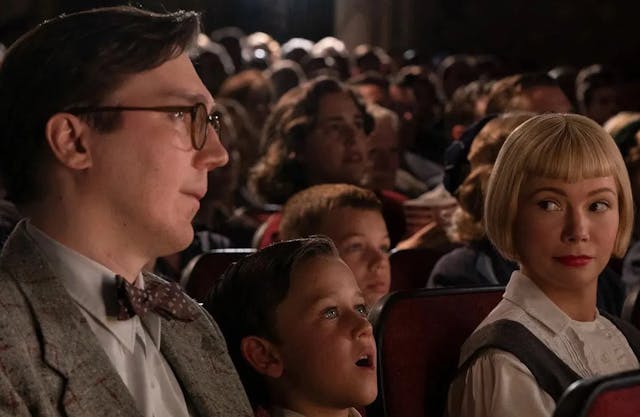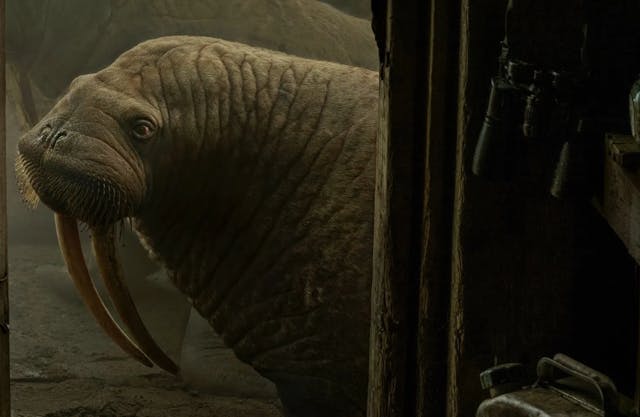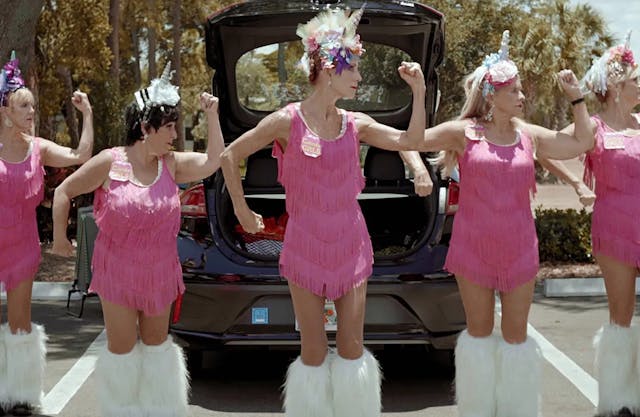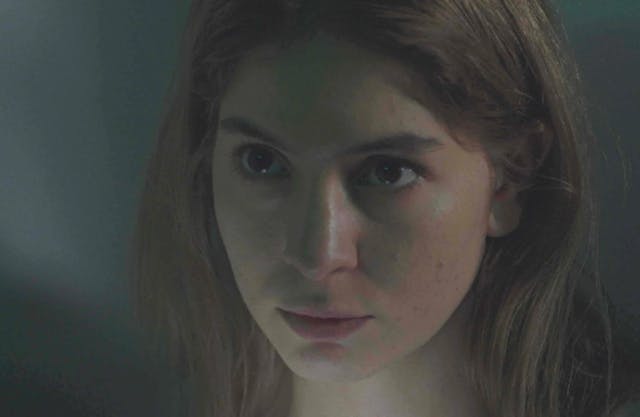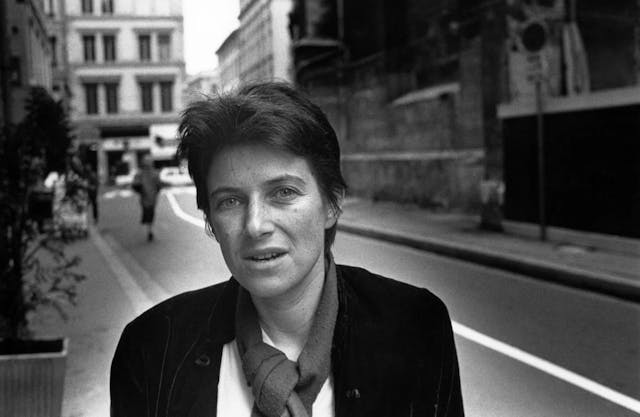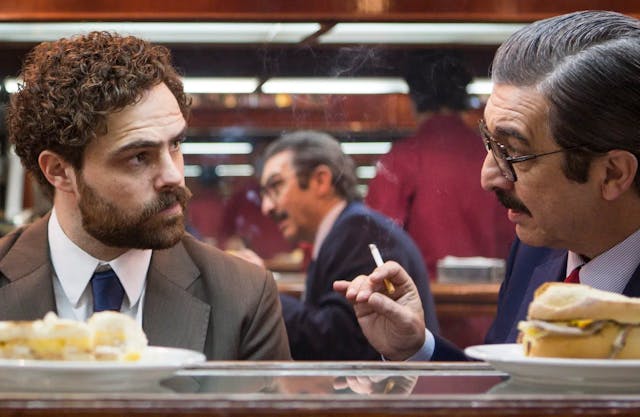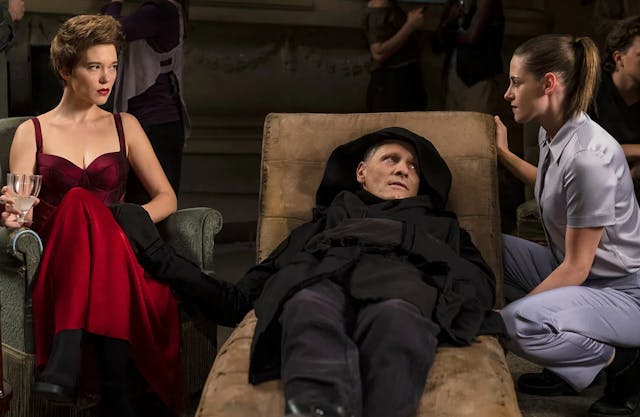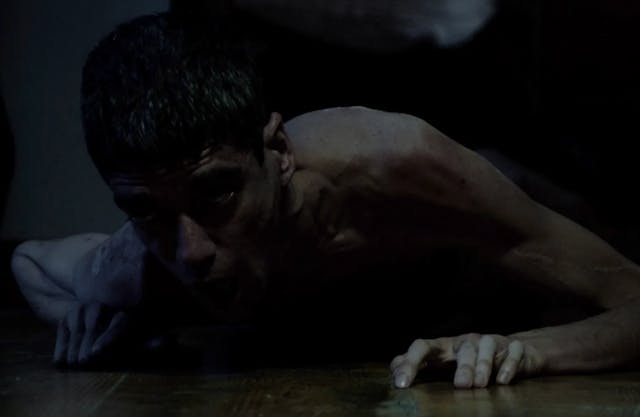Oscars 2023: Best Live Action Short Fave Is A Movie Buff's Xmas Gift

Once, to watch Academy Award-nominated short films was a pain, if not impossible. I am happy to say those days are over. Nowadays, they make the rounds in film festivals and get showcases in theaters everywhere before hitting streaming services, just like any movie in wide release. Some are even available before getting any recognition from Hollywood tastemakers.
We follow our Oscar 2023 coverage by looking at the five Best Live Action Short Film nominees. You can call it the Best Foreign Film 2.0 category. No US film is in the contest, but do not get sore, America-First activists. We get a bonafide classic, a white-knuckle thriller, and a nifty human comedy. I can do without two of the five entries, but that is my problem, not yours.
Ivalu
Directors Anders Walter and Pipaluk K. Jørgensen follow Pipaluk (Mila Heilmann Kreutzmann), an Inuit girl yearning for her missing older sister, Ivalu (Navi Larsen). Exactly why she is gone is revealed with the help of a crow, who guides Pipaluk through clues scattered around the magnificent landscapes of Greenland. The movie works best when it leans on mystical undertones. Once the dramatic resolution spells itself out, it feels less than the sum of its parts. It is an uncomfortable combination of a travelog, ethnographic documentary, and social-problem film. Based on a graphic novel by Morten Dürr.
Night Ride
It is a freezing night in Norway, and Ebba (Sigrid Kandal Husjord) can't wait for the tram conductor to finish his 30-minute break. She sneaks into the conductor seat and accidentally pushes the ignition, setting herself for a wild ride that will take her to a confrontation with a couple of hooligans. Ebba is a dwarf, and this feature puts her in the spot when circumstances force her to defend a trans girl from harassment. "Night Ride" is a slight but charming anecdote enhanced by Kandal's gravity. Director-writer Erik Tveiten is a talent to follow up. Check the full short on The New Yorker's YouTube Channel.
The Pupils
It might be unfair to pine recent film school grads against a contemporary master, but such is the luck of the Best Live Action Short Film nominee. Alice Rohrwacher is the best director working today in Italy. Her entry in this competition stands head and shoulders above the others. Whether it wins or not, "The Pupils" status as a Christmas classic is safe.
World War II rages on, and somewhere in rural Italy, an all-girls orphanage prepares to celebrate a lean Christmas. Mother Superior (Alba Rohrwacher) tries to keep her young charges in line while staging the town’s most important holiday event: a tableau-vivant of the little girls posing in a nativity scene. The villagers come to request prayers for their loved ones, offering food as payment. It’s a fair quid-pro-quo: many young men are in the line of fire, and the orphans’ innocence makes their prayers more powerful. A fancy lady (Valeria Bruni-Tedeschi) offers an extravagant cake for a good word for the man she loves, setting up a chain of events that would make O’Henry proud.
The Pupils is a worthy follow-up to Happy as Lazzaro (2018), Rohwarcher’s heart-breaking fable about saintliness prevailing in a secular world. Magic realism is supplanted by intense empathy as it contemplates how characters go against the odds - and sometimes each other - to achieve their goals. Next to the cherubic urchins, it would be easy to see Mother Superior as a foe. But one feels for her, trying to overcome scarcity to feed her young charges, even if it means giving away a magnificent dessert to please a high prelate. Rohwarcher reminds me of Ida Lupino in The Trouble With Angels (1966). She belongs in the gallery of magnificent nuns on film.
Post-modern stylistic touches undercut the period piece trappings: jumpsuits, freeze-frames, characters breaking the third wall to address the audience directly, reading letters aloud. The result is charming. I could have gone for a feature-length adventure following these characters. After having Scorsese producing Lazzaro, Rohrwarcher finds another kindred spirit in Mexican filmmaker Alfonso Cuarón, primed to get a third Oscar.
My only gripe is foreign to the movie itself. The girls are orphans, but the subtitles identify them as regular schoolgirls. Only one has a family, an aunt willing to host her over Christmas, and nothing more. The fact that they do not have a family adds poignancy to the story. Movie hack: You could program a family movie night pairing The Pupils with A Little Princess (1998), Cuarón's first English-language film. Go the extra mile and bake the magnificent-looking Zuppa Inglese. No matter whatthe womansays in the movie, it is not made with 70 eggs. I think she was overselling her wares.
The Red Suitcase
An Iranian teenage girl looks nervously at her red suitcase, going around and around in the baggage carousel at Luxembourg airport. Why she does not pick it up is the first of many questions in Cyrus Neshav’s ethical thriller, which plays into our prejudices to build suspense. When a couple of custom agents approach her, their suspicions become ours. Instead of using every revelation as a gotcha moment, the script by Neshav and Guillaume Level increases the tension by making the stakes more personal and human.
Newcomer Danielle Ewan gives a riveting performance, projecting foreigners - and humanity - to go against the stark glass and steel of the airport setting. The location works as a character, a symbol of unknowable Western culture, cold and not necessarily welcoming to the young immigrant whose real purpose eventually becomes apparent. The movie closes with the ironic shot of a shampoo advertisement poster, where the excited visage of a model reads more like desperation. The young woman may be changing one brand of oppression for another. Even freedom comes with strings attached.
It may go against the nature of the short form to say there is the potential of expanding the short into a feature-length work, but as complete in itself, as The Red Suitcase feels, you could easily follow the protagonist beyond the final scene.
An Irish Goodbye
Co-directors and screenwriters Tom Berkeley and Ross White offer a crowd-pleasing comedy of brotherly reconciliation in the face of death. Turlough (Seamus O'Hara) and Lorcan (James Martin) get together to receive their Mother's ashes. The rite opens up a new chapter in their life. Turlough is impatient to sell the family farm and return to his life in the city, while Lorcan stews in frustration. The young man with Down Syndrome wants to stay instead of being shipped off to live with distant relatives. When the friendly priest (Paddy Jenkins) produces a bucket list rescued among their mom's personal effects, Lorcan jumps at the chance of delaying the inevitable. He will go quietly away once they fulfill her wishes.
You can see how things will play out a mile away, but the movie flies on the wings of a particular kind of Irish whimsy. Think of The Full Monty (Peter Cattaneo, 1997) and other comedies that drove a combination of roughness and sentimentality to box-office success. Sure, the Irish may be rough around the edges, but deep inside, they are a bunch of softies. The movie obeys the innate desire for comfort and delivers on its promise. I can see why it got the nomination, but I do not think it deserves to win. Be sure to wait for a feature-length remake that will break box-office records.
* Update: Of course, "The Irish Goodbye" won the Oscar for Best Live Action Short. Thank God I don't live off my Award-season predictions.
Watch “Lonely”
“Lonely” is a powerful reminder that no one is ever truly alone, and there is always someone out there who cares and wants to help.
Stream NowWant to get an email when we publish new content?
Subscribe today
